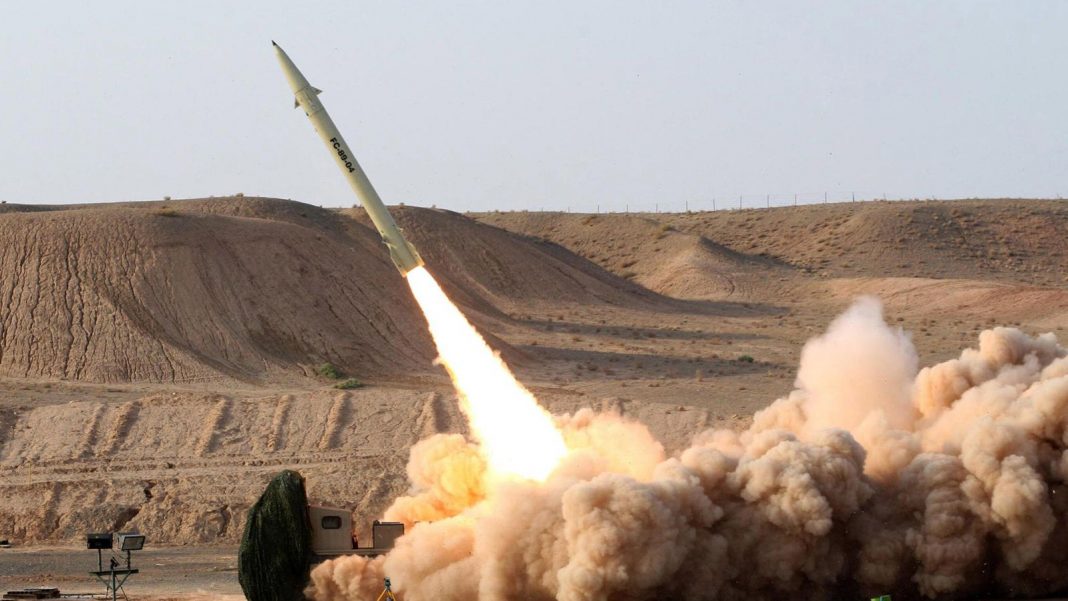Israel was caught off guard by Hamas’s careful and devastating attack, with the force using bulldozers, hang gliders and motorbikes against the Middle East’s most powerful army.
Saturday’s assault was the worst breach in Israel’s defences since the Arab armies waged war in 1973.
While Israel was led to believe Hamas only cared about jobs for its workers, the group’s fighters were being trained and drilled, often in plain sight, a source close to Hamas told Reuters.
Israel-Gaza latest: Israel under ‘huge’ rocket barrage
It culminated in fighters storming into Israeli towns, killing 700 Israelis and abducting dozens more. Israel has killed more than 400 Palestinians in retaliation.
Three sources within Israel’s security establishment also spoke to the news agency, outlining some of the details behind the attack.
Please use Chrome browser for a more accessible video player
2:23
‘My house is completely gone’
‘This is our 9/11’
The Palestinian Islamist group gave the impression it was not ready for a fight, the source close to Hamas said.
“Hamas used an unprecedented intelligence tactic to mislead Israel over the last months, by giving a public impression that it was not willing to go into a fight or confrontation with Israel while preparing for this massive operation,” the source said.
Israel has admitted it was caught off guard by the attack, which was timed to coincide with the Jewish Sabbath and a religious holiday.
“This is our 9/11,” said Major Nir Dinar, spokesperson for the Israeli Defence Forces. “They got us.”
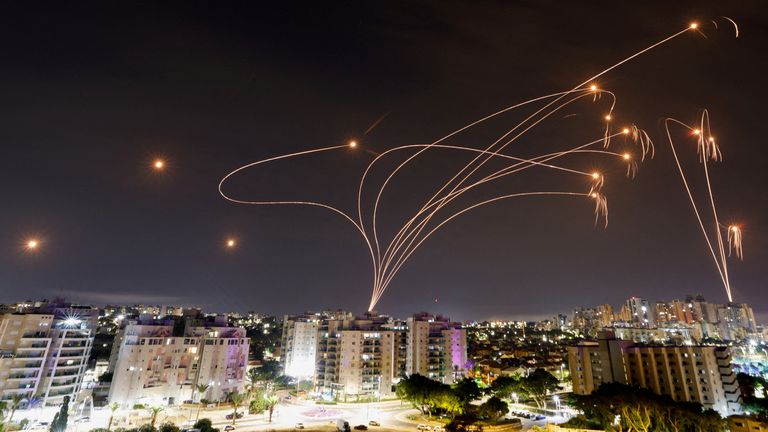
Smoke rises following Israeli strikes in Gaza, October 9, 2023. REUTERS/Mohammed Salem
The mock Israeli settlement
Hamas constructed a mock Israeli settlement in Gaza and practised military landings.
One source said Israelis “surely saw them” but were convinced the group wouldn’t get into a confrontation. Hamas convinced Israel it cared more that workers in Gaza had access to jobs across the border and gave the impression it had no interest in starting a new war.
“Hamas was able to build a whole image that it was not ready for a military adventure against Israel,” the source said.
Since a 2021 war with Hamas, Israel has sought to provide a basic level of economic stability and offered work permits for Gazans to have jobs in Israel and the West Bank, where salaries can be up to 10 times more.
“We believed that the fact that they were coming into work and bringing money into Gaza would create a certain level of calm. We were wrong,” another Israeli army spokesperson said.
As part of its subterfuge in the past two years, Hamas refrained from military operations against Israel, even as another Gaza-based Islamist armed group known as Islamic Jihad launched a series of its own assaults or rocket attacks.
Please use Chrome browser for a more accessible video player
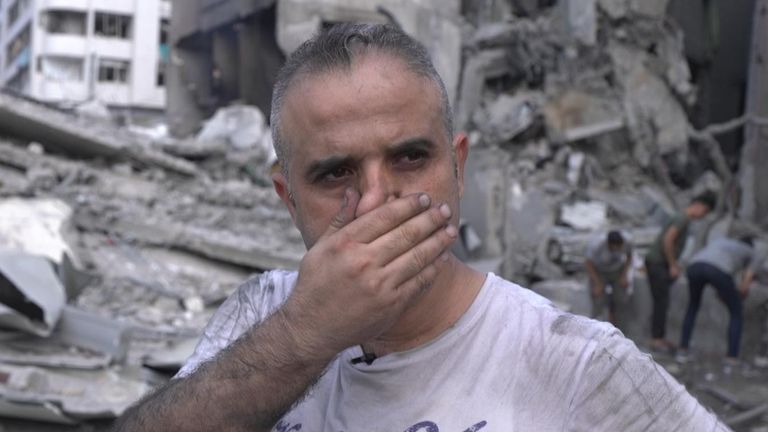
2:45
The human cost of the Israel-Hamas war
Fighters ‘didn’t know why they were being trained’
The fighters deployed didn’t know why they were being trained ahead of the weekend, one source also claimed.
Some Hamas leaders were also unaware of the plans in a bid to control leaks, as Israel has long prided itself on its ability to infiltrate and monitor Islamist groups.
In the West Bank, controlled by Palestinian President Mahmoud Abbas and his Fatah group, there were those who mocked Hamas for going quiet. In one Fatah statement published in June 2022, the group accused Hamas leaders of fleeing to Arab capitals to live in “luxurious hotels and villas” leaving their people in poverty in Gaza.
Read more:
Haunting messages left by Israelis taken hostage
What is Hamas – and why has it chosen now to strike?
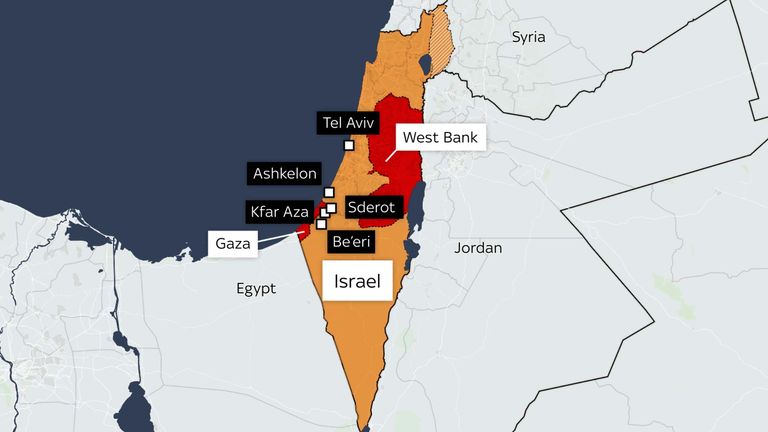
Some of the areas outside of Gaza where there have been isolated clashes between Israeli forces and Hamas militants
The day of the attack
When the day came, the operation was divided into four parts, the Hamas source said.
First came a barrage of 3,000 rockets fired from Gaza, while fighters flew hang gliders or motorised paragliders over the border.
Once fighters were on the ground, they secured the terrain so an elite commando unit could storm the fortified electronic and cement wall built by Israel to prevent infiltration.
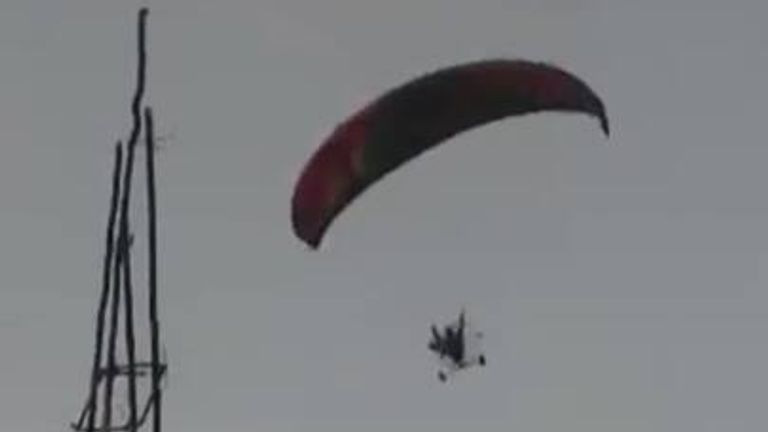
Hamas fighters appear to cross Israeli border with paragliders
The fighters used explosives to breach the barriers and then sped across on motorbikes. Bulldozers widened the gaps and more fighters entered in four-wheel drives.
A commando unit then attacked the Israeli army’s southern Gaza headquarters and jammed communications to prevent personnel speaking to each other.
The final part involved moving hostages to Gaza, mostly achieved early in the attack, the source close to Hamas said.
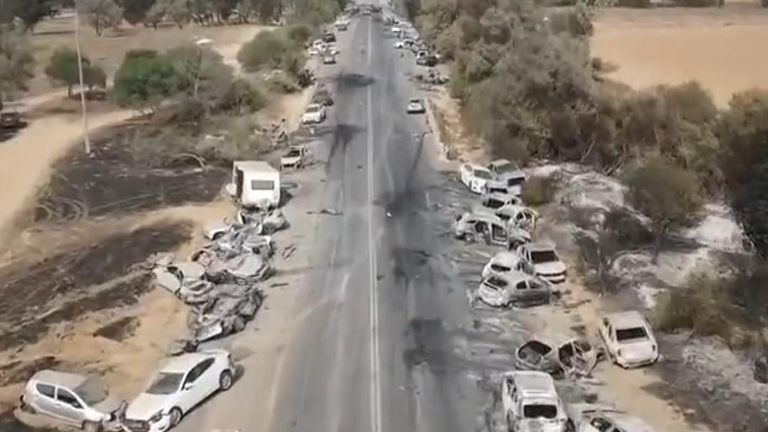
Vehicles lay abandoned outside a music festival in Israel following an attack by Hamas
‘We made a mistake’
The Israeli security source said Israeli troops were below full strength in the south near Gaza because some had been redeployed to the West Bank to protect Israeli settlers following a surge of violence between them and Palestinian militants.
“They (Hamas) exploited that,” the source said.
Dennis Ross, a former Middle East negotiator who is now at the Washington Institute for Near East Policy, said Israel had been distracted by violence in the West Bank, leading to a “thin, under-prepared presence in the south”.
“Hamas probably succeeded beyond their expectation. Now they will have to deal with an Israel determined to decimate them,” he said.
Retired General Yaakov Amidror, a former national security adviser to Prime Minister Benjamin Netanyahu, told reporters on Sunday the assault represented “a huge failure of the intelligence system and the military apparatus in the south”.
Please use Chrome browser for a more accessible video player

1:00
‘Mummy they shot at us’
Mr Amidror, chairman of the National Security Council from April 2011-November 2013 and now senior fellow with the Jerusalem Institute for Strategy and Security said: “We made a mistake. We are not going to make this mistake again and we will destroy Hamas, slowly but surely.”


